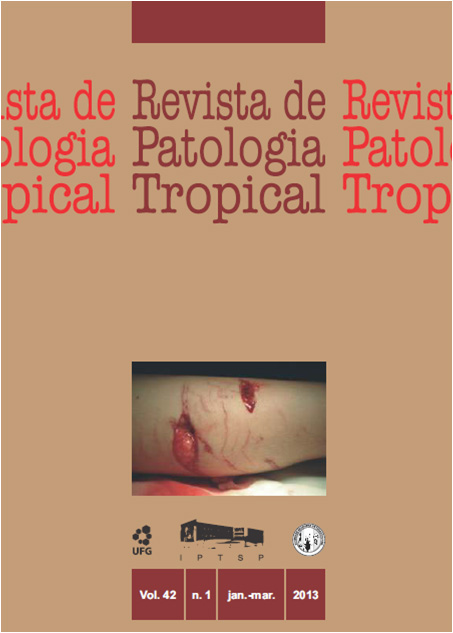ECOS DISTANTES DA ECO-EPIDEMIOLOGIA: REVISÃO DE CONCEITOS
DOI:
https://doi.org/10.5216/rpt.v42i1.23586Palavras-chave:
Eco-epidemiologia, Epidemiologia, Caixa-preta, Saúde pública, Risco.Resumo
Epidemiologia é definida aqui como o estudo da distribuição, frequência e causas das doenças humanas e com o estudo dos riscos para a saúde e práticas de saúde pública para a prevenção de todos os riscos para a saúde. Dirigida inicialmente aos fenômenos que afetam populações, os resultados de investigações epidemiológicas têm sido aplicadas a indivíduos, em especial no que concerne a riscos, o que ficou sendo conhecido como a grande falácia. Uma outra distorção ficou conhecida como epidemiologia de caixa-preta, ou seja, a adoção de ações sanitárias e de saúdepública sem conhecimento dos fatores biológicos subjacentes, em favor da investigação dos fatores de risco. Isso levou à teoria de que doenças poderiam ser prevenidas pela alteração do ambiente, independente do conhecimento detalhado dos mecanismos patogênicos. Finalmente, Susser e Susser defenderam um paradigma para uma era emergente da eco-epidemiologia, denominado caixas chinesas, uma alusão aos conjuntos de caixas que se encaixam umas nas outras. Este trabalho discute em maior detalhe as discussões sobre esses conceitos e as armadilhas que cercam a aplicação das teorias epidemiológicas para a saúde pública.
Downloads
Downloads
Como Citar
Edição
Seção
Licença
The manuscript submission must be accompanied by a letter signed by all authors stating their full name and email address, confirming that the manuscript or part of it has not been published or is under consideration for publication elsewhere, and agreeing to transfer copyright in all media and formats for Journal of Tropical Pathology.

